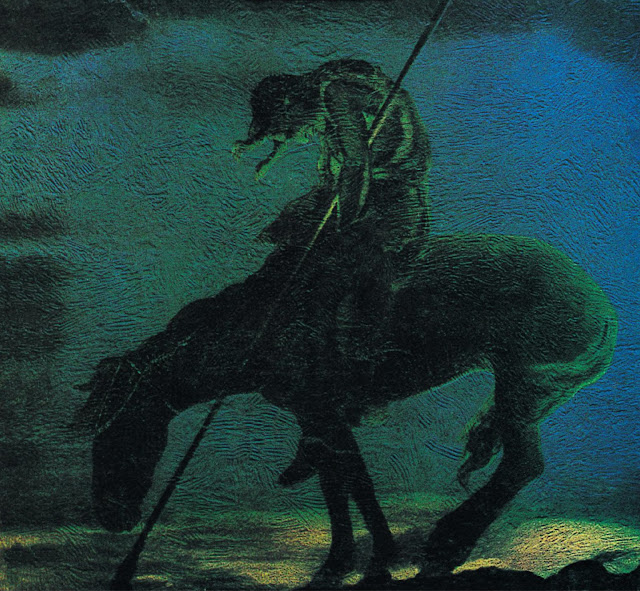Side A
1. Don't Go Near The Water
2. Long Promised Road
3. Sound Of Free
4. Disney Girls (1957)
5. Student Demonstration Time
6. Fourth Of July
Side B
7. Feel Flows
8. Barbara
9. Lookin' At Tomorrow
10.A Day In The Life Of A Tree
11. 'Til I Die
12. Wouldn't It Be Nice (To Live Again)
This series of reimagining of The Beach Boys' 70s albums, stand on this question : What if The Beach Boys continued a more "progressive pop/rock" music route with their albums instead of reverting back to the oldies/"fun in the sun" era.
(Note: In this discography, Surf's Up was released in 1967 on SMiLE)
My new versions are an amalgam of my own personal mixes, official mixes and other fan mixes from jiggy22, soniclovenoize, seltaeb, videojpp and others that I forgot. Many thanks all for your hard work!
Sometime in 1969, Brian Wilson opened a short-lived health food store called The Radiant Radish. While working there, he met journalist and radio presenter Jack Rieley. Flash forward one year later, after offering a six-page memo ruminating on how to stimulate "increased record sales and popularity for The Beach Boys", Jack Rieley officially becomes the band's new manager in the fall of 1970. Rieley had impressed the band with his credentials (a supposed Peabody Award-winning stint as NBC bureau chief in Puerto Rico- later discovered to be false) and fresh ideas on how to regain respect from American music fans and critics. One of his initiatives was to encourage the band to record songs featuring more socially conscious lyrics. Rieley also insisted that the band officially appoint Carl Wilson "musical director" in recognition of the integral role he had played keeping the group together since 1967. He also arranged a guest appearance at a Grateful Dead concert in April 1971, aiding to
push the Beach Boys' transition into the counter-culture.
After the relative commercial failure of the Sunflower/Add Some Music double album, the Beach Boys put all their effort into making a hit album. The project, now titled Landlocked, feature as per Sunflower compositions from each band members. "Long Promised Road" and "Feel Flows", two songs composed by Carl Wilson and Rieley, are cosmic numbers stepping into progressive rock territory. "Student Demonstration Time" (essentially the R&B classic "Riot In Cell Block #9") and "Don't Go Near the Water" finds Mike Love and Al Jardine eagerly embracing the group's new topical-oriented direction. Bruce Johnston's "Disney Girls (1957)" was praised by Brian for its harmonies and chords."A Day in the Life of a Tree" was Brian's sole new contribution written for the album. The song was experimented upon for days with a harmonium, an antique pump organ, and a smaller pipe organ. Van Dyke Parks and Jardine join Rieley to sing the song's coda. According to Jardine, Rieley sang the song when "no one [else] would sing it because it was too depressing."
"Til I Die" was a song Brian had been working on since mid-1970 but initially rejected by group members. He spent weeks arranging the song, using an electronic drum machine and crafting a harmony-driven, vibraphone and organ-laden background. This mix features an extended instrumental intro. After their last album, it was becoming clear that Dennis Wilson was soon becoming the group's greatest asset after Brian. His songs "Sound Of Free", "Barbara" "4th of July" and "(Wouldn't It Be Nice to) Live Again" are all highlights from the original LP.
Landlocked was released that August to more public anticipation than the Beach Boys had for several years. It outperformed Sunflower/Add Some Music commercially, reaching 29 in the US charts, becoming their best selling album in years. It was their first Top 40 album since Wild Honey, and in the UK it peaked at 15. Melody Maker positively reviewed: "Suddenly the Beach Boys are back in fashionable favour, and they've produced an album which fully backs up all that's recently been written and said about them."
In a retrospective review, John Bush wrote "[Most of the] songs are enjoyable enough, but the last three tracks are what make Landlocked
such a masterpiece. The first, 'A Day in the Life of a Tree', is
simultaneously one of Brian's most deeply touching and bizarre
compositions ... The second, ' 'Til I Die,' isn't the love song the
title suggests; it's a haunting, fatalistic piece of pop surrealism that
appeared to signal Brian's retirement from active life. The album
closer, 'Wouldn't it be Nice (To Live Again)' is a masterpiece of overblown romantic psychedelia, probably
the most compelling track produced by Dennis Wilson." In 2014, John Wetton named Landlocked as his favorite prog album of all-time, elaborating: "The summer of '71 had so many musical milestones ... but Landlocked
was a revelation. I was in family, a major player in the first wave of
British progressive bands, but this collection from the iconic
California surg-pop band shifted my parameters, blurring all the
bounderies of my musical vocabulary. I marvelled at the
mind-expanding poetry, wallowing in the glorious
harmonies. Both composition and production absolutely floored me. the
whole experience was my nirvana, And the cover? Mega prog!"
Even with them back on track on the road to success by the end of 1971, not all band members are happy with the new direction under the management of Jack Rieley. Leading to new lineup changes within the next year...


http://www6.zippyshare.com/v/YRrJuUw4/file.html
ReplyDelete